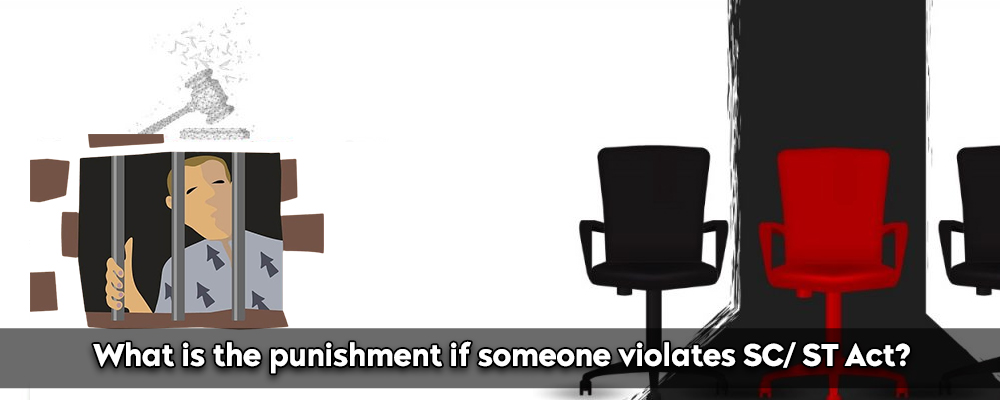The Prevention of Atrocities Act covers social impairments such as being denied entry to specific areas or being unable to use a traditional route, as well as personal atrocities like forced drinking or eating of inedible food, sexual exploitation, injury, and other forms of exploitation. Section 14 of the SC/ST Act establishes a Special Court for a quick trial of offenses under this Act in each district. On February 10, 2020, the Supreme Court upheld the constitutionality of the Act.
When all of the Constitution’s provisions failed to bring equality to Indian society and to prohibit the practice of untouchability, a new law was required, and the Untouchability (Offences) Act of 1955 was enacted; however, the act’s flaws and loopholes prompted the government to propose a redesign of the law. The act was renamed as the Protection of Civil Rights Act. Despite the government’s constant efforts to bridge the gap between the lower and upper castes, they remained a vulnerable minority. Recognizing these weaknesses, Parliament passed the “Schedule Caste and Schedule Tribe (Prevention of Atrocities) Act, 1989 and Rules, 1995” to rectify them.
The Scheduled Castes and Tribes (Prevention of Atrocities) Act, of 1989, popularly known as the SC/ST Act, safeguards marginalized communities against discrimination and atrocities. The act was passed on September 9, 1989, and the rules for it were published on March 31, 1995.
Need A Legal Advice
The internet is not a lawyer and neither are you. Talk to a real lawyer about your legal issue

Meaning of Atrocities
Before the Atrocities Act of 1989, the term “atrocity” was never used. The term “atrocity” is commonly used to characterize crimes against members of the SC and ST populations. It refers to someone violent and unpleasant. The term ‘crime,’ on the other hand, denotes an illegal act. It also refers to crimes involving suffering of some kind.
Punishments under Act
Section 4 of the Act sets out the punishments for atrocity crimes. If an upper caste member commits an offense against a lower caste member, they will face punishment under Section 4 of the Act. Sections 3 (1) I to (xv) and 3 (2) I to (viii) describe numerous heinous crimes and provide punishments and remedies. Section 3(1) identifies 15 distinct acts, such as force-feeding harmful substances, threatening to vote, contaminating widely used water, and so on, as punishable by a minimum of six months in prison and a maximum of five years in imprisonment and a fine.
Section 3 (2) includes severe violations such as fabricating evidence and causing the execution of an innocent SC/ST, among others, with punishments ranging from seven years to life in jail or death. Those who are not SCs or STs can only commit the offenses. Any public servant who is not an SC or ST who knowingly neglects obligations under this Act would be sentenced to a minimum of six months and a maximum of one year in jail. Section 7 authorizes the seizure of the captive’s property for the state. The property may be attached during the trial and then surrendered following the conviction.
Anticipatory bail procedures under Section 438 of the Criminal Procedure Code of 1973 do not apply to any case involving the arrest of a person under this Act, as defined in Section 18. The validity of this section has been questioned in light of Article 21. It was ruled that S.18 was a lawful procedure, and so did not infringe Article 21. The Mumbai High Court granted anticipatory relief, stating that the allegations did not create a prima facie case under the Act. When the guilty party under this Act is over the age of eighteen, Section 360 of the Code and Probation of Offenders Act 1958 is not applicable.
SC-ST Amendment Act, 2018.
On August 9, 2018, Parliament passed the Scheduled Castes and Scheduled Tribes (Prevention of Atrocities) Amendment Bill 2018. The following are the key features of the SC/ST Amendment Act 2018:
- Section 18A of the SC-ST Act makes it illegal to conduct a preliminary investigation before filing an FIR.
- Anticipatory bail will not be granted to anyone accused of atrocities against SC/ST people.
- The SC-ST Act authorizes the Investigation Officer (IO) to arrest the accused person or individuals without prior approval from a higher authority.
Lead India provides various legal services, including free legal advice and internet information. You can talk to a lawyer and ask legal questions about the law here. One can talk to lawyers from Lead India for any kind of legal support. In India, free legal advice online can be obtained at Lead India. Along with receiving free legal advice online, one can also ask questions to the experts online free through Lead India.





 Talk to a Lawyer
Talk to a Lawyer